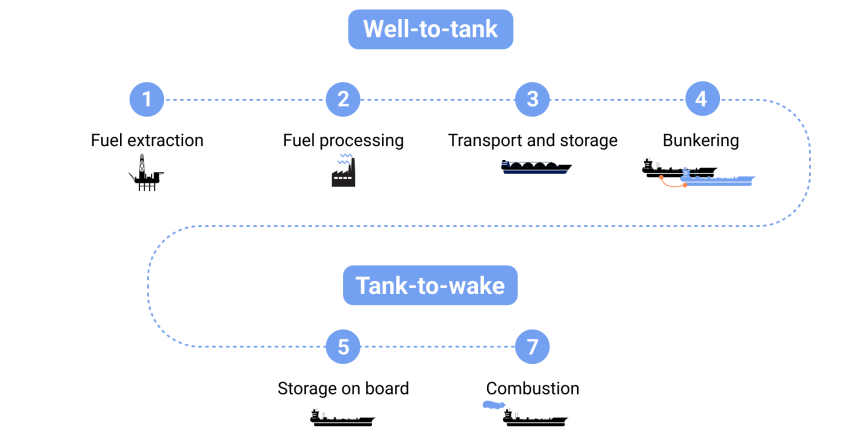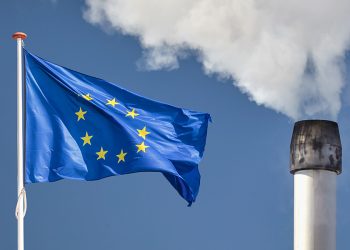According to T&E, oil and gas majors and shipping companies have presented LNG as a cleaner alternative to traditional marine fuels and a transitional fuel in shipping’s decarbonisation journey but can be as bad as the dirty fuels it is trying to replace.
While LNG combustion emits fewer local air pollutants and less CO₂ than conventional marine fuels, unburned methane that slips from LNG engines, especially the most polluting ones, commonly used in passenger and cruise ships, undermines its potential climate benefits.
Furthermore, whereas the uncombusted methane issue is increasingly recognised as problematic by policymakers, the upstream greenhouse gas emissions that occur during the extraction, processing, liquefaction, and transport phases of LNG largely go under the radar.

Known as well-to-tank emissions, they vary considerably depending on the LNG production location, influencing the overall climate impact of LNG-fueled ships.
Key Findings and Conclusions:
The U.S.A., Algeria, Russia, and Nigeria exhibited the highest WtT emissions (AR5 GWP100), aligning with their positions as top contributors to global flaring volumes.
- Standardizing CO2e reporting, particularly by detailing contributions of individual GHGs in calculations, will strengthen the accuracy of carbon intensity assessments and ensure values stay relevant and up-to-date as scientific understanding evolves.
- Russia has adjusted its national emission reporting methods to present lower estimates, drawing criticism from UNFCCC reviewers. While official reports may underreport emissions, other studies supplement estimates with satellite data and other gap-filling methods.
- T&T and Nigeria had relatively few references, likely due to low prioritization driven by political and economic factors, lack of mandated reporting, and insufficient reporting networks.
- Countries with less regulatory oversight, inadequate monitoring equipment, aging infrastructure, or other causes for equipment negligence and repair may have emissions that are underreported or inaccurately estimated.
- WtT processes that most significantly influence the carbon intensity of LNG and show substantial variation across export countries are flaring/venting, liquefaction, and transportation.
- Venting, flaring, and fugitive emissions were not reported as distinct process stages in the literature. While grouping these emissions under broader WtT stages should not lead to underreporting, their omission could. A follow-up study is recommended to determine the weight of these emissions on carbon intensities across countries and to assess how many studies incorporate measurements from satellites or other methodologies to accurately measure and validate these emissions.
Policy recommendations
The shipping industry increasingly relies on liquefied natural gas, seen as a cleaner alternative to traditional marine fuels. However, depending on the geographical location where LNG is produced, high upstream emissions from extraction, processing, and transport can make this fuel far worse for the climate than the current EU laws assume – even more harmful than heavy fuel oil.
To effectively address emissions from LNG and ensure shipping’s alignment with decarbonisation goals, T&E recommends the following EU and IMO policy actions:
- Update EU emission standards to accurately represent actual upstream methane emissions. The new EU Methane Regulation requires detailed reporting of fossil gas’ carbon footprint. Based on this real-time monitoring data, as well as the latest scientific research, the well-to-tank methane emission factor in the FuelEU Maritime Regulation should be updated accordingly.
- Set realistic LNG WTT emissions values at the IMO in the Group of Experts on the Scientific Aspects of Marine Environmental Protection (GESAMP), responsible for developing default emission factors for shipping fuels at the IMO, who have already started the process.
- Standardise fuels’ emissions reporting through the IMO, including annual reporting and the definition of separate values for each step of the fuel value chain.
- Ensure that the IMO Global Fuel Standard (GFS) considers shipping emissions on a WTW basis, including all steps across the fuel value chain, to avoid unreported emissions and align with the GHG reduction strategy.





























































